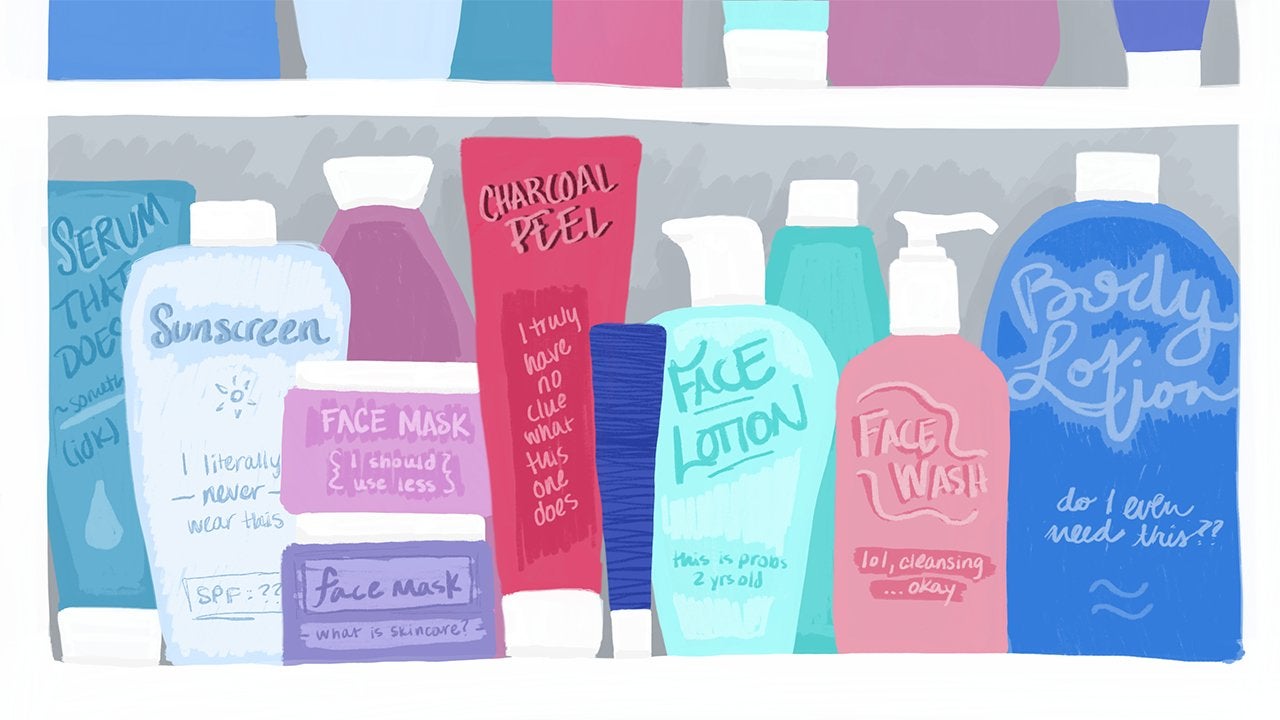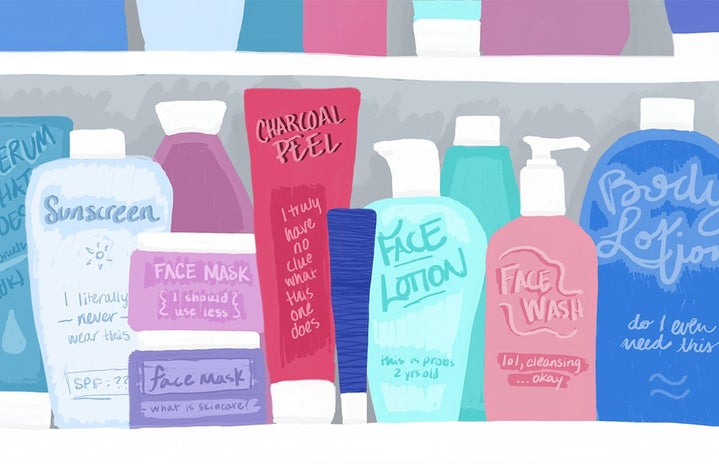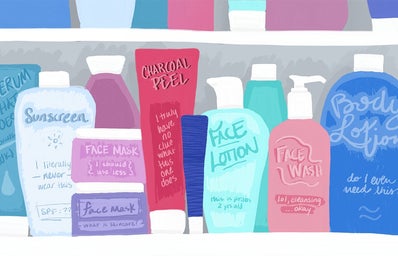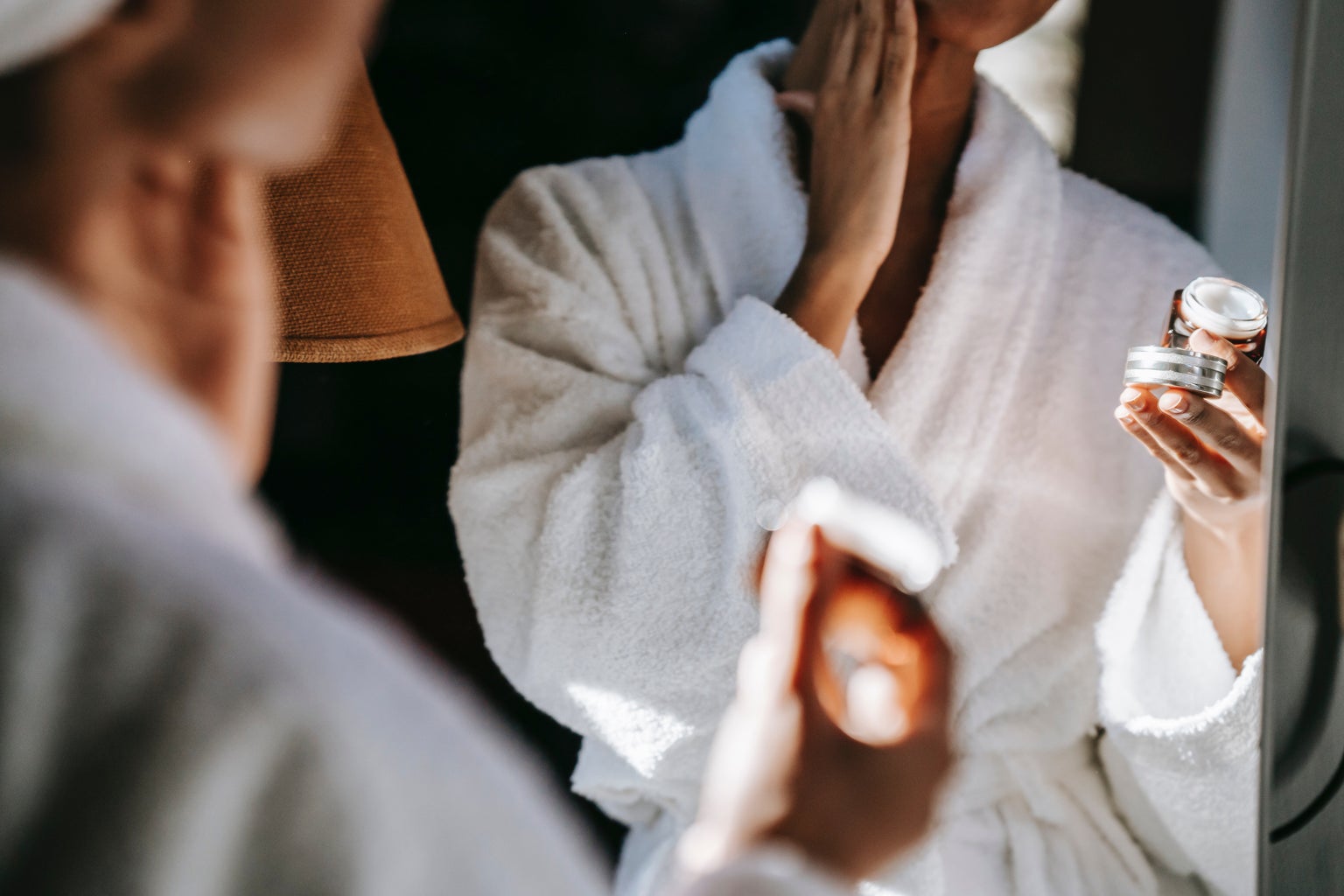With so many skincare products out there, how are we supposed to know which ones are the healthiest for our skin? One thing’s for sure, what determines their efficiency are the ingredients these skincare products contain. While I did my research to find what makes skincare products do the contrary (damage or irritate your skin barrier), I’ve discovered that there are a lot of ingredients that are very harmful for our skin. The sad truth is that most of them aren’t regulated when they definitely should be. In this article I’ll be mentioning a few common skincare ingredients that affect your skin negatively, whether they disrupt your hormones, are bad for our environment, or are promoters of carcinogenesis (the synthesis of cancer cells). Watch out for these additives in your sunscreens, moisturizers, and cleansers!
Parabens: preservatives
Parabens are preservatives included in cosmetics to increase products’ shelf life. Unfortunately, these compounds have been linked with hormone disruption, fertility issues, and increased risk of cancer. However, these statements have been debated, some research declaring they’re harmful, others say parabens are still in the gray area of toxicity while some say they’re safe in small doses. That being said, I suggest avoiding any products with chemicals that end with paraben (ex. isobutylparaben) as much as possible regardless.
Polyethylene glycol
Polyethylene glycol (or PEG) is a common additive that may assist in maintaining the moisture in your skin by absorbing excess water. Many scientific articles state that this kind of ingredient is safe to use on the skin; the “worst” it can cause is allergies. However, many experiments around PEG have studied this additive, and affirm that this compound can be contaminated with 1,4 dioxane: a carcinogenic impurity. Therefore, we shouldn’t risk using cosmetics containing polyethylene glycol due to its probability of containing this cancer-causing, trace contaminant.
Oxybenzone
Oxybenzone is one of many ingredients used in sunscreen to prevent UV radiation from damaging our skin. This dangerous ingredient has been referred to as an environmental contaminant due to it contributing to wastewater contamination, coral bleaching, and fish mortality. This is because it is highly reactive to chlorine, and when we use products containing oxybenzone and wash our faces with tap water, the chlorine within it reacts with the compound and indirectly affects our marine and freshwater ecosystems negatively. How does this affect us directly, though? Well, people who eat fish contaminated with oxybenzone and chlorine ingest these toxic chemicals, or are exposed to waters contaminated with them. The cycle continues thereafter. Ultimately, oxybenzone has been linked with being an endocrine disruptor (meaning it blocks hormones from working efficiently or at all), allergies, and Hirschsprung’s disease.
In conclusion
For our health benefit, it is pertinent that we read the ingredient labels of any type of product we use, be it skin, hair, or any type of cosmetic and research them independently or consult professionals. A lot of potential carcinogens or other toxic compounds are still being discovered, tested, and disapproved, and it’s our responsibility to educate ourselves in what we put on our face daily. Because, sure, a product at low doses can be relatively safe to use, but products such as cleansers, soaps, sunscreens, and hair shampoos are used daily or weekly, and all of these chemicals slowly pile up after decades of use.




